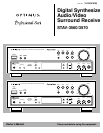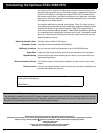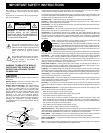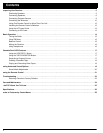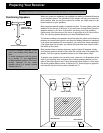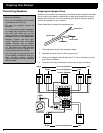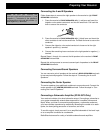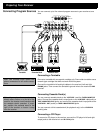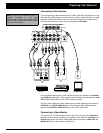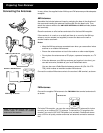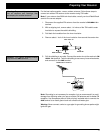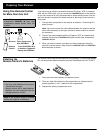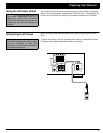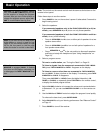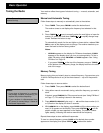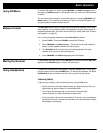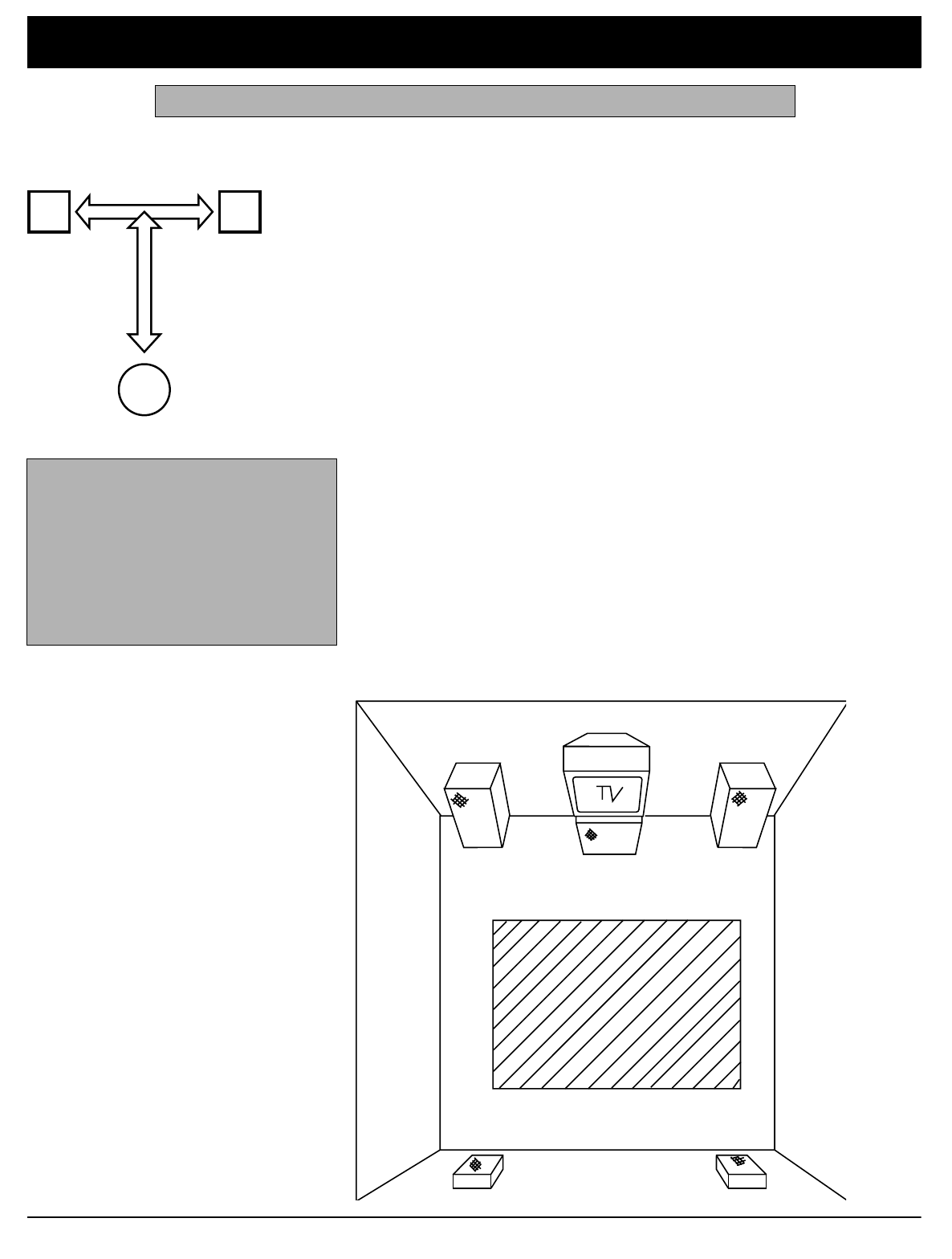
5
Preparing Your Receiver
Positioning Speakers
Where you place your speakers (not supplied) can make a noticeable difference
in your system’s sound. The guidelines in this section will help you choose the
best locations. After you use your receiver for a while, you might want to try dif-
ferent locations for your speakers.
Bass response depends largely on speaker location. For strong bass, place the
speakers in the corners of the room. If you want even stronger bass, place the
speakers directly on the floor. If the bass is too strong, move the speakers
slightly away from the corners of the room, or raise them 6 to 18 inches off the
floor. You can buy speaker stands at your local RadioShack store.
The distance between the speakers should be about the same as the distance
between the normal listening point and the point halfway between the speakers.
If you place the speakers too close together, you reduce the stereo separation.
If you place them too far apart, you reduce the bass effect and create a
hole
in
the middle of the sound.
Most speakers have a tweeter dispersion angle of about 60 degrees. Ideally,
your listening position should be just inside the overlap area of the tweeter dis-
persion. You can angle the speakers toward you for better stereo effect.
To position your speakers for surround sound, place the A or B speakers at the
front of your listening area, and place the surround speakers behind or to the
sides of the listening point (see “Using Advanced Sound Options”). Also, place
the center speaker above, below, or behind the TV. Sound might not appear to
coincide with the picture if you place it beside the TV.
Caution: Make all the necessary connections before you plug in or turn on the receiver.
• Surround speakers generally sound
best if you position them above ear
level.
• To avoid interference with the picture
on a nearby TV, use magnetically
shielded speaker systems. This is par-
ticularly important for the center
speaker since it is usually located
closest to the TV.
L
R
a
b
a=b
Halfway Point
Between Speak
e
Person in Listenin
g
Area
Center Channel
Right Front
Left Front
Rear Channel
Rear Channel
Listening
Area



